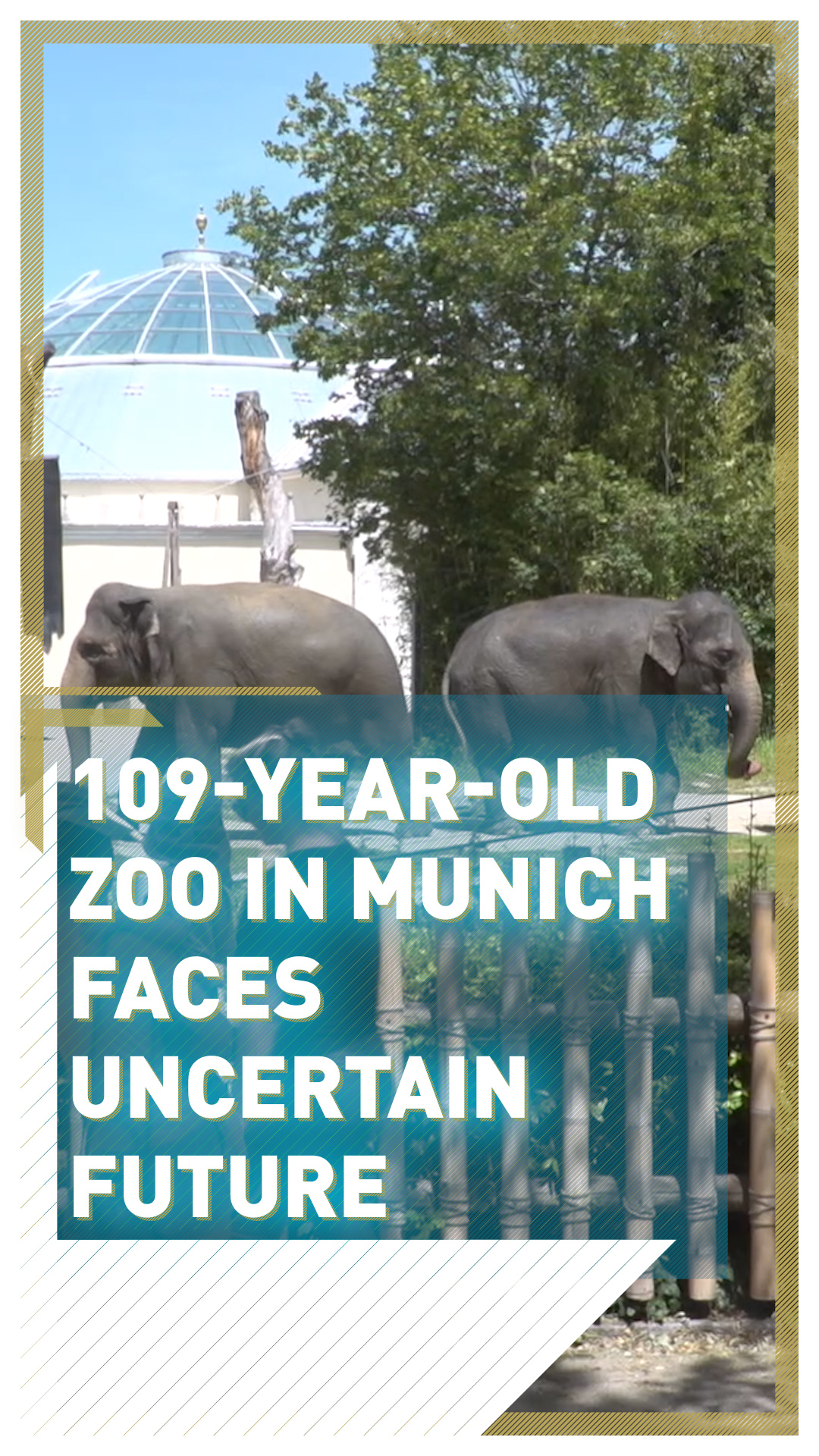02:19

Munich's Hellabrunn Zoo is one of the oldest zoological institutions in Germany at nearly 110 years old. It is also one of the biggest with more than 700 different species and 1,800 individual animals. Yet this mainstay of Bavarian pride is facing an uncertain future.
According to Rasem Baban, the director of zoo, two months of forced closure because of COVID-19 has hurt its bottom line, costing around $5.6 million.
"And when we were allowed to reopen, we were only allowed to do so with very limited numbers of visitors," meaning, he said, that they are still running a deficit of about $22,500 every day.

A child visiting Munich's Hellabrunn Zoo after it reopened. /Natalie Carney/ CGTN
A child visiting Munich's Hellabrunn Zoo after it reopened. /Natalie Carney/ CGTN
When the zoo reopened in mid-May it still had social distancing to contend with. Despite it being an outdoor venue, it has had to adhere to state measures similar to that of an indoor venue, meaning only a fraction of the entrance tickets can be sold for any given day.
"When we reopened, we were only allowed 20 square meters per person in this movement area, where visitors can move," Baban said. "That was when we had 2,180 visitors a day.
"Now we are allowed 10 square meters per person, with around 4,370 visitors a day. But on a beautiful day, we would normally have up to 17,000 visitors to the zoo."
The zoo has asked the state government to reduce the restrictions to one person for every five square meters, which would then allow for 9,000 guests per day.
"We are measured like a retail store, like a cinema, like a theatre, but we are an outdoor destination," he added. "And that's the reason why we complained to the state government. Why are we measured like a shop? We are in the fresh air, the animal houses are closed and, in this respect, there is no danger.”

A poster detailing social distancing guidelines for zoo visitors. /Tierpark Hellabrunn/
A poster detailing social distancing guidelines for zoo visitors. /Tierpark Hellabrunn/
But any changes could be tricky, particularly as a second wave of COVID-19 is expected, which would push the zoo to its absolute financial limits.
Angela Tyler Rockstroh and her seven-year-old son, are both concerned about the zoo's future.
"The zoo gives so much back to the city and the residents of Munich," she said. "We visit often, learning about animals, the daily lessons and talks about animals, kindergarten groups visit daily, the private birthday parties behind the scenes with the animals.
"Munich zoo never gets old - it is one of our family's favorite places in the city."
Baban has sent many letters requesting more support from Munich, the Bavarian state capital. He says that while little has been offered so far, talks are going well and he is hopeful.
Yet if their revenue does not improve significantly soon, there is a real concern for the future of the zoo and the wellbeing of the animals.

A polar bear playing in its enclosure after visitors were allowed back into the zoo. /Tierpark Hellabrunn / Maria Fencik/
A polar bear playing in its enclosure after visitors were allowed back into the zoo. /Tierpark Hellabrunn / Maria Fencik/
"If this number of visitors is not going to be increased in the next few days... that could mean that we can no longer continue the lion keeping here in Hellabrunn. We cannot sell animals. That is forbidden," said Baban.
"But we might have to hand them over to another zoo, for example. But we don't want that."
All over the world zoos have suffered from the financial effects of lockdowns. One zoo in the UK faced the possibility of mass euthanasia of its penguins, seals and ducks until another zoo agreed to re-home them.
Munich's Hellabrunn Zoo is doing all it can to avoid financial collapse. But substantial donations, or a change in the COVID-19 rules for the outdoor location, must take place to save this staple of Bavarian society.
Video editing: Sam Cordell